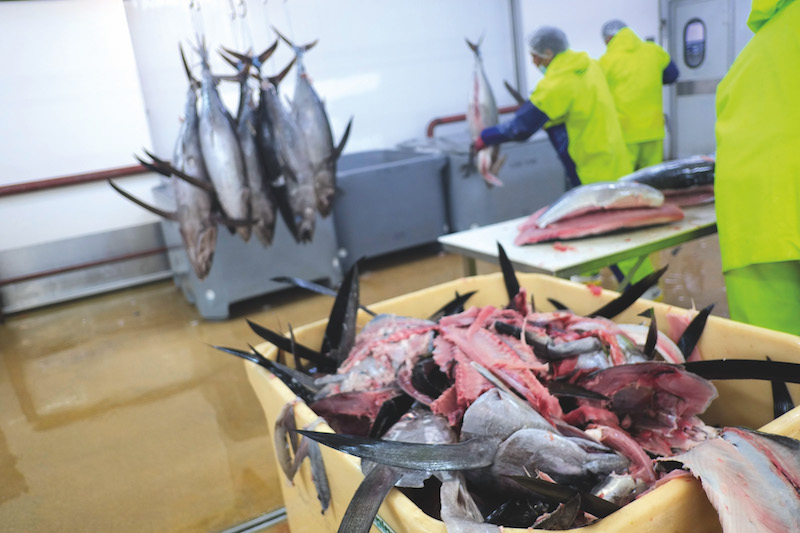
Miracle compost under our noses
Tahiti, April 11, 2021 – Former Minister of Agriculture and Current Mayor of Tapotapuatia and SPC Vice President, Thomas Motami, provides training to municipalities in the use of organic fertilizers made from whale waste. The goal is development Food independence In municipalities and homes.
Last Friday, elected officials and agents of Mahena municipality benefited from a training course on manufacturing organic fertilizers that specifically rely on fish residues. A training course organized by the Union for the Advancement of Municipalities (SPC) and presented by its seventh vice-president, Tavana de Tappotapuatia, and former Minister of Agriculture Thomas Motami. “Agriculture is my field. I was born in it and love it”The elected official in charge of school catering issues at SPC, slips. So Thomas Moutame, a specialist in organic farming, chose to share his experience and expertise in obtaining chemical fertilizers from faa’apu. “It’s been over fifteen years since I put this in place in Taputapuatea. We made mistakes, but today it’s gaining momentum”Tavana explains. “And I wanted to share this with every tavana.”.
Inexpensive and odorless
Taputapuatea tavana has been working with this locally produced organic fertilizer for several years. “It will help the earth to be better, because it will give it the nitrogen, phosphate and trace elements it lacks.”Thomas Mutham details. “In addition, this compost, even if there is fish, has no smell.”
To obtain 200 liters of this organic fertilizer, which can be kept for more than a year, 30 kg of fish droppings are needed. A resource available on Fare Ute CJA. We add 15 liters of molasses and 10 liters of microorganisms, especially non-chlorinated water. This is to prevent microorganisms from dying., Outlines the tavana. After that, leave the mixture for a month, with stirring once a week. At the end of these four weeks, the compost is ready. “You should not use it fresh, because your plants will burn.”Tavana warns. “You will have to put some of them in an irrigation pot and mix it with 15 liters of water, then water your plants or fruit trees two to three days a week with this dose.”. According to the former minister, fish fertilizers lead to flowering. “I have fruit trees at home, they are so laden that I have to use wood to support the branches.”.
Another advantage is that fertilizers are very inexpensive and make it possible to recycle waste that is currently not sufficiently recovered. “For 10,000 cubic feet of compost, you have 200 liters of fertilizer. And when you don’t have any, you return it. If you had to buy a lot of quantities, it would have come back nearly 100,000 BF.”. The elected official regretted in this regard that the fishing port of Fare Ute, which produces 1,000 tons of fish waste annually, pays “5 million Mexican feet a year to go and throw this trash outside.” “If the fishing port is in Tapotapuatia, nothing gets thrown away. You can make fertilizer or even fishmeal with all of that.”
Food independence
For Thomas Mutham, these training sessions are primarily aimed at developing and supporting food independence. “To achieve food independence, every family must prepare and be independent. So they will have healthy products in their homes. “ So schools, through their municipalities, are pushing to set up educational vegetable gardens with students. “Our children should learn to grow our products, especially the use of this type of organic fertilizer.”.
The elected official has been providing this type of training for about fifteen years in Taputapuatea and now has a roadmap with the SPC to provide it as widely as possible in the municipalities and associations. “I have to go to Tuamotu too, because every town should have their own vegetables instead of bringing them from Tahiti. It’s too expensive. And yet they have everything there. Coconut fluff, fish, they have raw materials. All you have to do is. Clicked. ” The next training will take place next Friday in Moria.

“Unapologetic pop culture trailblazer. Freelance troublemaker. Food guru. Alcohol fanatic. Gamer. Explorer. Thinker.”
